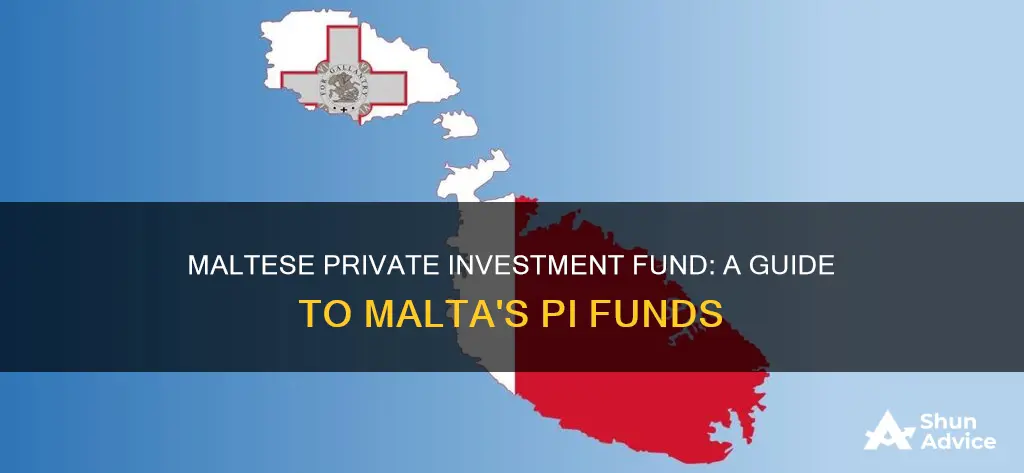
Malta is an attractive place to set up an investment fund due to its broad legislation covering different types of investments. Maltese laws provide for various investment funds depending on the investors who may register retail and professional investor funds (PIF). The Investment Services Act in Malta defines investment funds as Collective Investment Schemes (CIS) and they can take the legal forms of companies with variable share capital (SICAV), companies with fixed share capital (INVCO), limited partnerships, unit trusts, and mutual funds. Maltese retail funds are available for registration to the general public, while professional investor funds target investors who must fulfill certain requirements before being accepted as investors. One type of fund that can be established in Malta is a private investment fund. Private funds refer to CISs that limit the total number of participants to fifteen individuals and are considered private in nature and purpose.
| Characteristics | Values |
|---|---|
| Regulation | Investment Services Act, Company Act, AIFM Directive |
| Types | Retail, Professional Investor Funds (PIF), Undertakings for Collective Investment in Transferable Securities (UCITS), Alternative Investment Funds (AIFs), Notified AIFs (NAIFs) |
| PIF Types | Experienced Investors (€10,000 min. investment), Qualifying Investors (€75,000 min. investment), Extraordinary Investors (€750,000 min. investment) |
| AIF Requirements | Administered by authorised managers, minimum capital of €125,000 if self-managed, appoint a custodian |
| PIF Requirements | Minimum investment of €100,000, declaration of understanding of investment risks, satisfy at least one qualifying criterion |
| Taxation | Prescribed funds: 15% on bank interests, 10% withholding tax on interest for Maltese public companies, capital gains tax on incomes from Maltese property. Non-prescribed funds: exempt from Maltese taxation unless earning income from Maltese property. |
What You'll Learn

Maltese law and investment funds
Maltese law provides a broad legislative framework for investment funds, making it one of the most advantageous countries to set up an investment fund. The Investment Services Act (ISA) is the primary regulation governing investment funds and investment services in Malta. Under the ISA, investment funds are referred to as Collective Investment Schemes (CIS) and can take various legal forms, including companies with variable or fixed share capital, limited partnerships, unit trusts, and mutual funds.
Malta offers two main types of investment funds: Retail Funds and Professional Investor Funds (PIFs). Retail Funds are available for registration to the general public, while PIFs target investors who meet certain requirements. PIFs can be further categorised into three types, depending on the minimum investment amount and the nature of the investors:
- Experienced Investors: Minimum investment of €10,000
- Qualifying Investors: Minimum investment of €75,000
- Extraordinary Investors: Minimum investment of €750,000
PIFs offer flexibility and limited restrictions, attracting various fund strategies such as hedge funds, private equity, real estate, and venture capital. They are governed by the Investment Services Rules of the Laws of Malta and do not have mandatory appointment requirements for administrators and custodians. The Malta Financial Services Authority (MFSA) is the regulatory body that approves PIFs, and the approval process typically takes between 8 to 12 weeks.
Another type of investment fund in Malta is the Alternative Investment Fund (AIF), which is regulated by the AIF law and the ISA. AIFs must be administered by authorised managers under the AIFM Directive, and the minimum capital required for self-managed AIFs is €125,000. Hedge funds, real estate funds, and private equity funds are considered AIFs.
Malta also offers Undertakings for Collective Investment in Transferable Securities (UCITS) funds, which are liquid and transparent retail products that can be freely marketed across the EU. UCITS funds can be established as unit trusts or open-ended investment companies.
The taxation system for investment funds in Malta is advantageous, with prescribed funds (having at least 85% of their assets' value registered in Malta) taxed at different rates depending on the type of income, and non-prescribed funds generally exempt from taxation unless earning income from immovable property in Malta.
Overall, Maltese law provides a comprehensive and flexible framework for establishing and operating investment funds, making it an attractive jurisdiction for fund promoters and investors alike.
Ranking Mutual Funds: Strategies for Smart Investment Choices
You may want to see also

Types of Maltese investment funds
Malta has established itself as an attractive location for investment funds, fund managers, and other asset servicing providers. The country offers a flexible environment that is particularly appealing to smaller funds and start-ups. Maltese investment funds are regulated by the Investment Services Act, which recognises investment funds as Collective Investment Schemes (CIS). CIS can take the legal forms of companies with variable share capital (SICAV), companies with fixed share capital (INVCO), limited partnerships, unit trusts, and mutual funds.
Maltese laws provide for various investment funds depending on the investors who may register. The two main categories are retail funds and professional investor funds (PIF). Retail funds are available for registration to the general public, while PIFs target investors who must fulfill certain requirements before being accepted. PIFs are the most popular hedge fund in Malta and are designed for professional investors and high-net-worth individuals due to the lower investment, asset threshold, and experience required compared to other types of funds.
PIFs can be created with a minimum investment of €100,000, or by setting up an umbrella fund that includes other sub-funds. The invested amount can be established per scheme, rather than per fund, which is often viewed as a more accessible option by investors. PIF investors must be Qualified Investors, defined as individuals with assets of more than €750,000, or a body corporate, unincorporated body of persons, association, or trust.
Maltese retail funds are further categorised into UCITS (Undertakings for Collective Investment in Transferable Securities) and non-UCITS funds. UCITS funds may be established as unit trusts or open-ended investment companies. Licenses for non-UCITS funds are available for the local market, and these funds may be registered as open-ended or closed-ended companies.
Alternative Investment Funds (AIFs) are another type of investment fund in Malta. AIFs are required to raise money from the public and invest it based on a well-established strategy. AIFs must be administered by authorised managers, and if self-managed, they need a minimum capital of €125,000. Examples of AIFs include hedge funds, real estate funds, and private equity funds.
DSP Blackrock Mutual Fund: A Guide to Investing
You may want to see also

The taxation of Maltese investment funds
Prescribed funds are taxed as follows:
- Bank interest is charged at a 15% withholding tax rate.
- Interest, discounts, or premiums received from the Maltese government, corporations, or authorities established by law in Malta are charged at a 10% final withholding tax rate.
- Capital gains tax is applied to incomes derived from immovable property in Malta.
Non-prescribed funds, on the other hand, are generally exempt from taxation in Malta unless they earn income from immovable property or real estate located in the country. In such cases, they are taxed at a rate of 35%.
It is important to note that the categorisation of a fund as prescribed or non-prescribed can change if the proportion of local assets changes, and this decision is made at the discretion of the Commissioner of Inland Revenue. Collective Investment Schemes (CISs) are required to keep payers informed of any updates to their status.
Strategies to Cease Mutual Fund Investments: A Guide
You may want to see also

The benefits of Maltese investment funds
Malta has established itself as a hub for investment funds, fund managers, and asset servicing providers, offering a flexible environment that is particularly attractive to smaller funds and start-ups. The jurisdiction's credibility is supported by the presence of several high-profile, complex, retail, professional, and alternative fund structures in the country. This is fuelled by attractive fiscal incentives, competitive prices, a pool of competent talent, and an address within the European Union.
Flexible Regulation, Transparency, and Good Governance:
Maltese investment funds benefit from the country's membership in the European Union and the Eurozone. Malta deploys a robust regulatory and supervisory framework with an emphasis on the fitness and propriety of senior individuals in companies. The Malta Financial Services Authority (MFSA) is the single competent authority, enforcing legislation that adheres to EU standards and codes, as well as those of most other international frameworks. The MFSA also allows for quick and non-complex set-up processes, making it easier for funds to establish themselves in the country.
Range of Investment Structures and Fund Products:
Malta offers a versatile range of investment structures and fund products that can be tailored to meet the diverse needs of fund initiators. This includes the Professional Investor Fund (PIF), the Crypto PIF, the Alternative Investor Fund, the Notified Alternative Investment Fund, and Undertakings for Collective Investment in Transferable Securities. These structures provide flexibility and limited restrictions, making them attractive to various fund strategies and types of investors.
Multilingual and Professional Workforce:
Malta boasts a multilingual and professional workforce, with English as the primary language. Professionals in Malta often speak four languages, including English, Italian, French, and German. This makes the country an attractive destination for international investors and businesses.
Competitive Tax Structure:
Maltese investment funds benefit from one of the most competitive tax structures within the EU while being fully OECD compliant. The country offers favourable taxation policies, such as a full imputation taxation system, which can bring down corporate tax rates to as low as 5% instead of 35%. Additionally, Malta provides an excellent network of double taxation agreements, helping to reduce tax burdens for investors.
Investor Safeguarding and Approachable Regulators:
Malta prioritizes the rights and protection of investors, with increased regulatory scrutiny, transparency, and good governance. The MFSA ensures compliance with regulations, and Maltese investment funds also benefit from the country's approachable and dynamic regulatory environment, which has become a selling point for funds or related entities looking to establish a presence in Malta.
Overall, Maltese investment funds offer a range of benefits, including a favourable regulatory environment, a skilled workforce, competitive tax structures, and flexible investment structures. These advantages have contributed to Malta's growing reputation as a leading destination for investment funds and fund managers.
Philam Life Mutual Funds: Your Guide to Investing
You may want to see also

How to set up a Maltese investment fund
Setting up an investment fund in Malta requires adherence to specific guidelines and regulations. Here is a step-by-step guide on how to establish a Maltese investment fund:
Understand the Types of Investment Funds:
Malta offers various investment fund options, including Professional Investor Funds (PIFs), Alternative Investment Funds (AIFs), and Undertakings for Collective Investment Schemes (UCITS). Each type of fund caters to different investor profiles and has unique characteristics.
Select the Appropriate Company Structure:
Choose the legal structure for your investment fund from the options provided by the Company Act:
- Investment companies with fixed or variable capital (SICAV and INVCO)
- Incorporated cell companies
- Limited liability partnerships
Register with the Maltese Companies Registrar:
Once you've determined the fund's structure, proceed to register it with the Maltese Companies Registrar. This step involves providing the necessary documentation and information about your company.
Apply for a Financial License:
After registering your company, apply for a financial license from the Malta Financial Services Authority (MFSA). The MFSA will require specific documents, including:
- A key investor information document (KIID)
- Registration documents
- Agreement with the service provider
- Fund's prospectus
Comply with Investment Services Act:
According to the Investment Services Act, all Maltese investment funds must apply for an investment services license before issuing financial instruments. This Act regulates investment funds and services, defining them as Collective Investment Schemes (CIS).
Meet Capital Requirements:
Different types of investment funds in Malta have varying minimum capital requirements. For instance, AIFs require a minimum investment of EUR 100,000, while UCITS funds typically need around EUR 300,000.
Appoint a Custodian and Fund Manager:
For AIFs, it is mandatory to appoint a custodian, usually a Maltese bank. Additionally, you must appoint a fund manager, who can be local or foreign. If you choose to self-manage your fund, ensure you meet the minimum capital requirements.
Prepare Necessary Documentation:
To set up a Maltese investment fund, you will need specific documents, including:
- Incorporation documents of the investment company, partnership, or trust
- Prospectus of the fund
- Information about investors (KIID document)
- Service provider contract
Understand Taxation:
Maltese investment funds offer a favourable taxation system. Taxation depends on the fund's category and whether it is prescribed or non-prescribed. Prescribed funds, with at least 85% of their assets' value registered in Malta, are taxed at different rates for bank interests, Maltese public company interests, and capital gains from Maltese immovable property. Non-prescribed funds are generally exempt from taxation unless they generate income from Maltese immovable property.
Seek Professional Assistance:
Consider consulting Maltese lawyers or company formation agents who can provide guidance on the specific requirements and procedures for setting up an investment fund in Malta. They can assist with registration, compliance, and ensuring that your fund adheres to Maltese laws and regulations.
Monthly Mutual Fund Investment: A Step-by-Step Guide
You may want to see also
Frequently asked questions
Maltese private investment funds are a type of collective investment scheme (CIS) that is regulated by the Investment Services Act. These funds can take the form of companies with variable or fixed share capital, limited partnerships, unit trusts, or mutual funds. Maltese laws provide different types of investment funds depending on the investors, including retail and professional investor funds (PIF).
Maltese investment funds are attractive due to their advantageous taxation system. Prescribed funds, which have at least 85% of their assets' value registered in Malta, are taxed at a rate of 15% on bank interests and 10% on interest for Maltese public companies. Non-prescribed funds are generally exempt from taxation unless they earn income from immovable property in Malta.
To set up a Maltese private investment fund, you will need to select the type of company that will market the fund and incorporate it with the Companies Register. The owner must then file specific documents with the Malta Financial Services Authority (MFSA), including details of the investment strategy, incorporation documents, information on the custodian, and the fund's prospectus.







